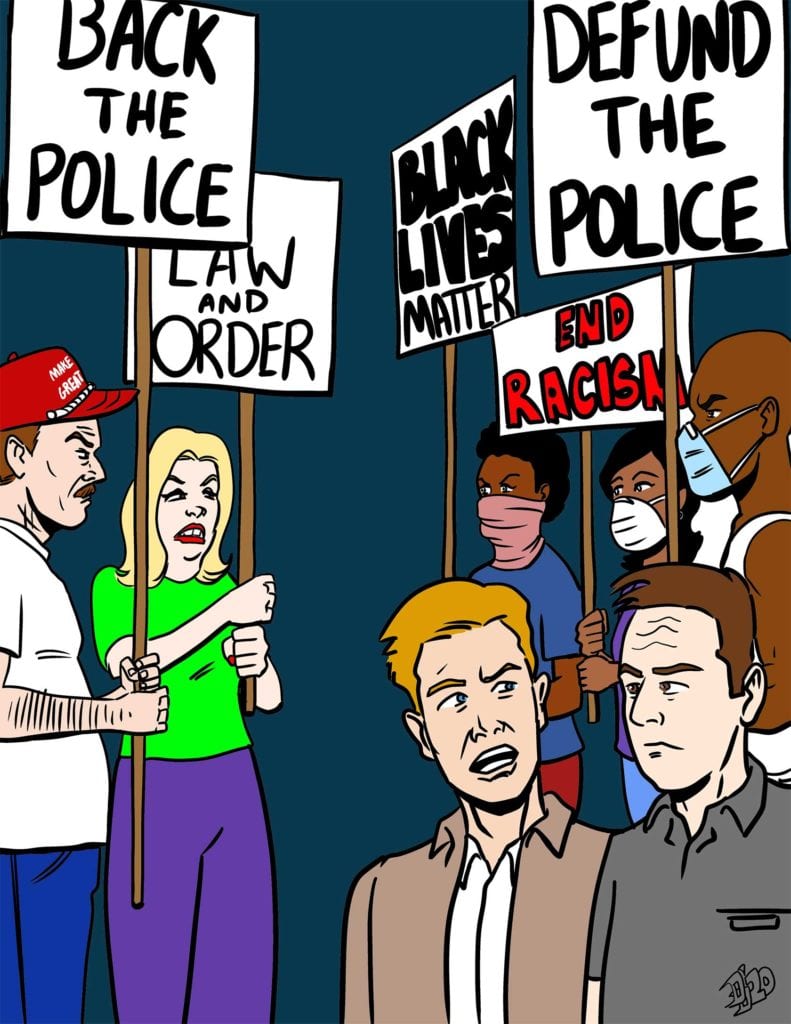An ill-advised meeting
Police Commissioner William Gross erred in meeting with U.S. Attorney General William Barr

Mayor Martin Walsh has extraordinary insight and sensitivity to understand that “racism is a public health crisis in Boston.” Blacks have understood this for some time. Some people focus on the insults and the disrespect. But the man on the corner who has to bear the brunt of bigotry simply asserts, “The racist will shoot you in the leg, then criticize you for limping.”
The mayor wants to end the racial conflict and ameliorate the physical and psychological injury to the victims. He understands how racism can lead to joblessness or underemployment, inadequate housing, poor health care and psychological depression. Too often those looking at the dire consequences of racism then blame the victim for having failed or being inadequate.
By bravely speaking up, Walsh has assumed a great responsibility. He has not personally created Boston’s bigotry, but he has been unwittingly brought up in it. In the early days of the republic, Boston was a major port of entry for immigrants. New residents from Ireland, Italy, Lebanon, Germany, Greece, Cape Verde, the Caribbean and elsewhere settled in homogeneous neighborhoods where they shared a common history and often a foreign language. People expected solidarity with their neighbors against competition with the “others.”
This tribalism intensifies racism. For some bigots, it’s not enough that the white person is merely demonstrating fair treatment for a Black citizen, he must also not be breaking the code of solidarity within his tribe. For example, when the lawyer Lawrence O’Donnell Sr. represented the family of James Bowden, a Black man killed in a police shooting, Irish police officers became enraged at O’Donnell’s perceived disloyalty to the tribe, even though the police had planted evidence and Bowden was killed when he was innocent.
Police Commissioner William Gross seems not to have understood the tribalism problem confronting Walsh when he decided to ignore the mayor’s instruction not to meet with U.S. Attorney General William Barr. After the execution of George Floyd by the police in Minneapolis, efforts to constrain the police became the primary issue of protesters. One of the most common chants became “Defund the police!!” The police department is a major core of power in the Boston Irish community.
The general opinion is that Barr is no more than a hit man for Trump, rather than the public servant with primary responsibility to assure that no one is above the law. Trump has stated his profound antagonism to the establishment of any penalties or procedures to restrict police violence.
Barr’s visit was undoubtedly political, and the mayor has sole responsibility for meeting with Barr or not. It was pathetically naïve for Gross to meet with him, in defiance of the mayor’s instruction not to do so. In most corporate environments, Gross would be fired.
According to the Boston Globe, Gross’ response to criticism was, “I’ll be damned if I’m going to hide from a conversation with anyone.” So Gross spoke to Barr “as an African American male.”
Clearly Gross does not understand the chain of command. Mayor Walsh is individually responsible for the outcome of the revisions in the role of the police. If the commissioner is unable to comply with the commands or directions of the mayor, he should resign. If the citizens are dissatisfied with the performance of the mayor in coping with the police, there is a remedy for that. It is called an election.
To undercut the mayor deteriorates his command presence and thereby makes it more difficult for citizens to achieve the necessary remedial changes in police practices. The needed improvements will not come easily. Everyone will look to Mayor Walsh for success, not Commissioner Gross.






